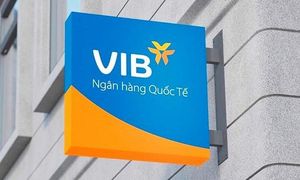On February 4, 2024, coinciding with World Cancer Day, three organizations launched a pivotal petition aimed at banning aspartame throughout Europe. This joint initiative involves Foodwatch, the French Cancer League, and the food scanning application Yuka, responding to growing concerns over the sweetener's potential health risks.
Aspartame, classified as "possibly carcinogenic to humans" by the World Health Organization’s International Agency for Research on Cancer (IARC) since July 2023, has remained on the market, prompting outrage from public health advocates. French consumers and health organizations argue for its ban, citing the chemical's prevalence and serious health concerns.
Philippe Bergerot, President of the Cancer League, highlighted the risks, stating, "There’s no reason to allow people to be exposed to a completely avoidable risk of cancer." This sentiment has become increasingly relevant as more studies link aspartame to various health problems, including cancers and metabolic disorders.
The petition seeks to mobilize consumers across eleven countries—Austria, Belgium, France, Germany, Italy, Ireland, Luxembourg, the Netherlands, Spain, Switzerland, and the United Kingdom—to pressure the European Commission and Member States to enact immediate legislative changes against aspartame. Natacha Cingotti, Senior Campaigns Strategist at Foodwatch International, emphasized the urgency by stating, "The inaction of governments and Europe over the last year and a half is intolerable. An additive with so many risks has no place in our food or drink. Our European decision-makers must protect us."
Currently, aspartame is found as E951 on the ingredient labels of over 2,500 products, including sodas such as Coca-Cola Zero and Pepsi Max, as well as many sugar-free snacks and cereals. This extensive usage, coupled with the latest evidence from the IARC, has raised alarms among public health officials, prompting organizations like Foodwatch to highlight the need for precautionary measures.
The WHO's classification of aspartame as possibly carcinogenic is not the only issue at stake. Independent research has long associated the sweetener with serious health risks, including type 2 diabetes and cardiovascular diseases. An alarming epidemiological study conducted by the French INSERM found increased cancer risks among consumers of products containing aspartame, noting significant health impacts even with minimal intake levels—just half a can of soda daily.
Foodwatch, the Cancer League, and Yuka aim to gather at least one million signatures to demonstrate widespread public support for their initiative. "We hope to see at least one million signatures to make our voices heard across Europe," stated Julie Chapon, Managing Director of Yuka. Yuka’s app has enabled consumers to make informed choices about their dietary selections, with 95% of its users reportedly avoiding products containing controversial additives due to the app’s guidance.
The momentum for this petition follows years of growing skepticism surrounding aspartame's safety. Foodwatch and its allies argue for more responsible evaluations of food additives, pointing out potential conflicts of interest stemming from industry-sponsored research. They assert, "Since it has not yet been proven safe, aspartame should no longer be authorized on the European market." Reports indicate troubling reliance on studies linked to the food industry, calling the integrity of existing evaluations and regulations concerning aspartame to question.
Despite these concerns, regulatory bodies such as the European Food Safety Authority (EFSA) re-evaluated aspartame as safe for consumption back in 2013—a stance questioned by several experts and advocacy groups. Calls for more stringent oversight and updated assessments reflect the changing public perception of artificial sweeteners, increasingly viewed as risky alternatives.
Notably, consumer preferences have shifted away from artificial sweeteners over the past decade, with the usage of aspartame reportedly dwindling from 1.8% to 0.4% of food products within ten years. This reduction speaks volumes about changing consumer attitudes toward health, inspired by desires for more “natural” food options.
The opposition to aspartame, underlined by the new petition, marks a significant movement among European consumers wary of artificial additives—with calls for unity and collective action against what many view as dangerous health policies. Natacha Cingotti warns, "The apathy of our political leaders on this issue cannot continue. Our health deserves more than indecision. We must act now."
The launch of this petition may usher in broader discussions surrounding food safety regulations and public health policies, underscoring the power of collective consumer action. With health expert backing and widespread consumer engagement, this initiative aims to press for substantial change.
Advocates argue for increased transparency and stricter health protections to safeguard public welfare, emphasizing the necessity and urgency of revisiting food safety laws and regulations. This campaign not only signifies consumer activism but also spotlights the indispensable role of rigorous scientific evaluation for food products purported to be safe for human consumption.



